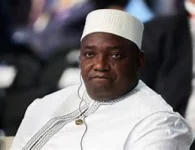Professor Jallow has some big concerns, which he shared in a recent analysis. His words give us a lot to think about.
Jallow talks about the number of people who want to be president. It has gone up a lot. He says many of them are not ready for the job. They just want the title. This is not good for the country.
This issue goes beyond just the presidency. In past elections, many people ran for office, and they did not always have strong reasons. This made things messy and confusing.
When too many people run, it splits up the votes, and no one gets a clear win. That can make it hard to govern later, and it leads to fights about who really won.
Jallow is also worried about the state of politics in general. He says some people use politics for their own gain, not really wanting to serve the public. This happens on all sides.
Many Gambians are tired of this. They see politics as a way to get ahead personally, which hurts trust in the system and makes it hard for groups to work together.
Jallow has some ideas to improve things. He wants new rules for elections. For example, he thinks candidates should have to show they are serious and qualified.
Changes like that could help. But they have to be fair to everyone. We do not want to exclude people unfairly. It is a balance.
Jallow's points make us think about leadership, too. Sometimes, elections give us leaders who do not represent us well. That is because voters do not always have good information or are just fed up with the process.
To fix this, people need to understand the issues, know how to pick good leaders and hold those leaders responsible for their actions.
Jallow sees other problems, too. Many politicians give jobs and resources to their friends, not always picking the best people. This makes the government work poorly and can lead to corruption.
To stop this, we need stricter rules and more openness. People should get positions based on what they can do, not who they know.
The opposition parties have a role to play as well. But Jallow says they are divided and do not work together well, which makes it hard for them to challenge the ruling party.
If they want to win, opposition groups must join forces and show they are a strong option. Then, voters will see them as a real choice.
Jallow's analysis is a wake-up call. It shows that Gambia's democracy needs work. The 2026 elections are a chance to do better.
But change will not come easy. It will take hard work from everyone. Politicians, activists, and regular citizens all have a part to play.
The path ahead may be tough, but it is one the nation must walk with clear eyes and open hearts. Only then can Gambia build a brighter future—one where every voice counts and every vote matters.
Jallow talks about the number of people who want to be president. It has gone up a lot. He says many of them are not ready for the job. They just want the title. This is not good for the country.
This issue goes beyond just the presidency. In past elections, many people ran for office, and they did not always have strong reasons. This made things messy and confusing.
When too many people run, it splits up the votes, and no one gets a clear win. That can make it hard to govern later, and it leads to fights about who really won.
Jallow is also worried about the state of politics in general. He says some people use politics for their own gain, not really wanting to serve the public. This happens on all sides.
Many Gambians are tired of this. They see politics as a way to get ahead personally, which hurts trust in the system and makes it hard for groups to work together.
Jallow has some ideas to improve things. He wants new rules for elections. For example, he thinks candidates should have to show they are serious and qualified.
Changes like that could help. But they have to be fair to everyone. We do not want to exclude people unfairly. It is a balance.
Jallow's points make us think about leadership, too. Sometimes, elections give us leaders who do not represent us well. That is because voters do not always have good information or are just fed up with the process.
To fix this, people need to understand the issues, know how to pick good leaders and hold those leaders responsible for their actions.
Jallow sees other problems, too. Many politicians give jobs and resources to their friends, not always picking the best people. This makes the government work poorly and can lead to corruption.
To stop this, we need stricter rules and more openness. People should get positions based on what they can do, not who they know.
The opposition parties have a role to play as well. But Jallow says they are divided and do not work together well, which makes it hard for them to challenge the ruling party.
If they want to win, opposition groups must join forces and show they are a strong option. Then, voters will see them as a real choice.
Jallow's analysis is a wake-up call. It shows that Gambia's democracy needs work. The 2026 elections are a chance to do better.
But change will not come easy. It will take hard work from everyone. Politicians, activists, and regular citizens all have a part to play.
The path ahead may be tough, but it is one the nation must walk with clear eyes and open hearts. Only then can Gambia build a brighter future—one where every voice counts and every vote matters.












